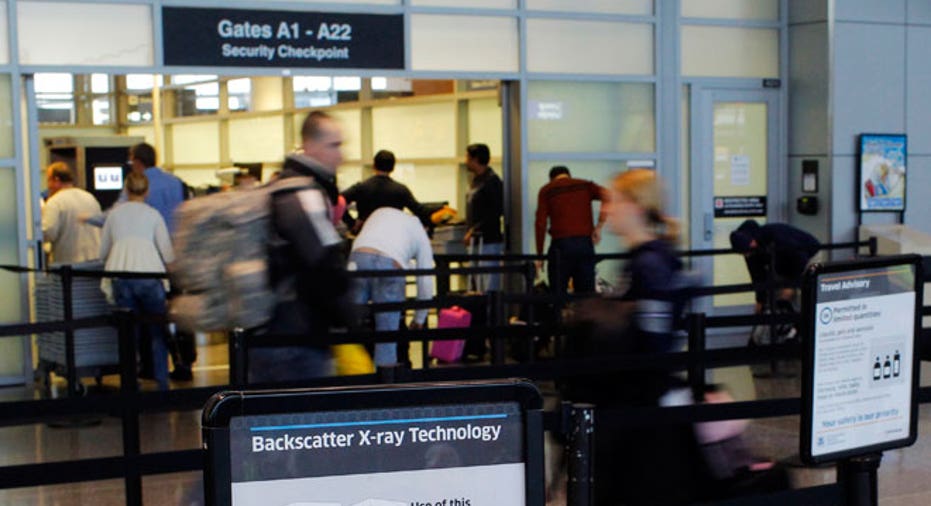Feds & Airlines Considering New Screenings for Ebola

Federal officials and airlines are discussing whether U.S. airports should screen passengers to identify people who might have Ebola, but the White House on Monday said a ban on travel from West African countries would slow the fight against the virus.
"What we're looking to do is review these screening measures," White House spokesman Josh Earnest told reporters at a daily briefing. But officials did not want to impede transport systems used to send supplies and personnel to West Africa to fight Ebola, he said.
Airlines for America, a trade group for the airline industry, separately said it would meet health and safety officials later Monday to discuss whether additional screenings could improve on measures already in place.
People leaving Ebola-affected countries are asked to fill out a questionnaire on whether they have symptoms such as a high fever and whether or not they have had any contact with someone who was diagnosed with Ebola. In Liberia, at least, they also are scanned for fever.
Authorities in the United States and the public are on alert following the first diagnosis of Ebola in the country just over a week ago, raising concerns that the worst Ebola epidemic on record could spread from West Africa.
Liberian traveler Thomas Eric Duncan is fighting for his life in a Dallas hospital, which initially sent him away with antibiotics, only to have him return two days later in an ambulance.
Texas Health Presbyterian Hospital said in a statement that Duncan remains in critical condition "and is now receiving an investigational medication, brincidofovir, for Ebola Virus Disease." Brincidofovir was developed by Chimerix Inc.
U.S. authorities say they are confident the disease can be contained in the country, while steps are being taken to ramp up the response to Ebola at its source in West Africa.
Texas Governor Rick Perry, announcing the formation of a state task force on infectious diseases, said Monday that there were troubles with handling the Ebola diagnosis in Dallas, but defended the state's overall public health management.
"There were mistakes made and there will probably be mistakes made in the future," Perry said. "I stand by the fact that the process is working. We don't have an outbreak. We have one event that is being handled properly."
Perry also called for enhanced federal action. "To begin with, Customs officials and Border Patrol agents at all points of entry, should immediately be directed to conduct enhanced screening procedures, obtaining more information about people who are coming from affected areas and taking appropriate steps upon arrival."
The head of the Texas team, Dr. Brett Giroir, said: "We live in an interconnected world, where an outbreak anywhere is a risk everywhere."
Dr. Thomas Frieden, director of the U.S. Centers for Disease Control and Prevention (CDC) said health officials were closely monitoring 10 people who had direct contact with Duncan and are considered at greatest risk. Frieden said so far none has shown any symptoms.
Meanwhile, the fifth American to contract Ebola in West Africa arrived in the United States for treatment on Monday.
A private plane carrying Ashoka Mukpo, a freelance cameraman for NBC News who contracted Ebola in Liberia, landed in Omaha and was taken to the Nebraska Medical Center. The plane was met by an ambulance staffed by workers in yellow protective suits, NBC video showed. Mukpo, 33, will be treated in a biocontainment center that was commissioned in 2005 to provide the first line of treatment for biological attacks and extremely infectious diseases.
Ebola, which can cause fever, vomiting and diarrhea, spreads through contact with bodily fluids such as blood or saliva.
The death toll from the disease is rising in three impoverished West African countries, Liberia, Sierra Leone and Guinea. The current Ebola outbreak has killed at least 3,439 people since it began in March, out of nearly 7,500 confirmed, probable and suspected cases. In addition to those three countries, the tally includes Nigeria and Senegal, where Ebola is believed to have been contained, and the United States' one case.
(Additional reporting by Susan Heavey and Mohammad Zargham in Washington; Lisa Marie Garza in Dallas; Writing by Grant McCool; Editing by Jim Loney and Peter Henderson)



















